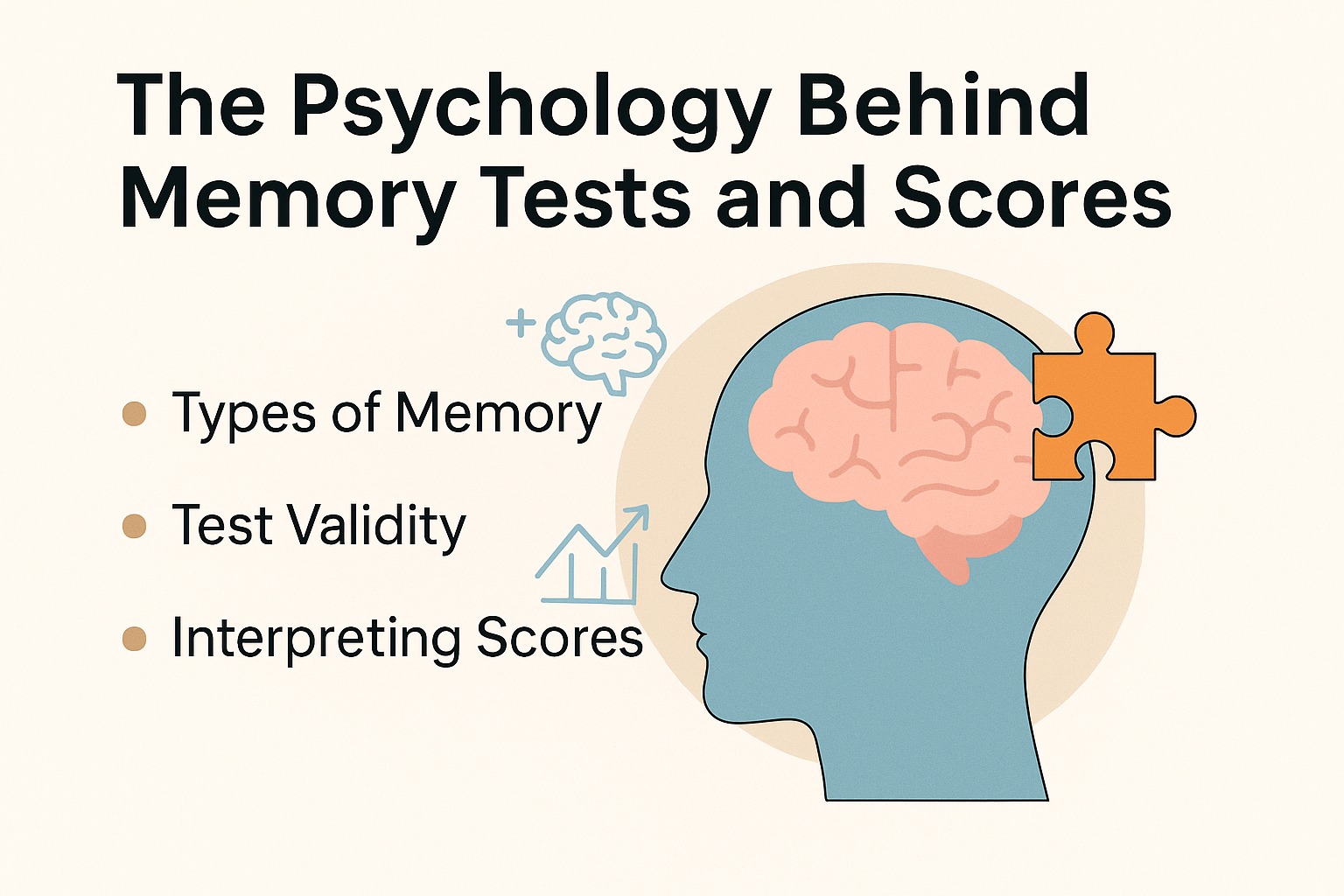The Psychology Behind Memory Tests and Scores
Memory tests are more than just games — they’re rooted in deep psychological principles. Whether you're taking a Chimp Test, a visual memory game, or number recall challenge, these tools tap into key areas of cognitive science.
🧠 Types of Memory Measured
- Short-Term Memory: Holding information temporarily (e.g., a phone number)
- Working Memory: Manipulating that information while solving a problem
- Long-Term Memory: Stored and retrievable knowledge
🔍 How These Tests Work
Most online memory tests activate your working memory. For example, remembering the order of flashing boxes or words relies on your ability to hold and use recent input.
📊 What Your Score Reflects
- Your attention span and focus level at that moment
- How effectively your brain encodes and retrieves data
- Pattern recognition and short-term spatial awareness
Dr. Ayesha Raza, a cognitive psychologist, says: “Scores aren’t static. They vary with sleep, stress, and mental fatigue. What matters is consistency over time.”
⚠️ Common Misconceptions
- “Low score = low intelligence” — Memory is just one part of IQ
- “You can’t improve memory” — Regular mental workouts show proven results
- “Only kids benefit” — Adults and seniors gain from cognitive training too
📈 How to Improve Your Memory Scores
- Practice daily with memory games
- Sleep 7–9 hours regularly
- Avoid multitasking and distractions during tests
- Use chunking and visualization techniques
📌 Final Thoughts
Memory tests are simple yet powerful tools that give you a snapshot of your brain's performance. With psychological foundations and measurable results, they're a great way to track and improve your cognitive fitness.
📎 Related Reads:
- What is Working Memory? Explained Simply
- Can Memory Games Actually Make You Smarter?
- Best Free Tools to Boost Brain Function
